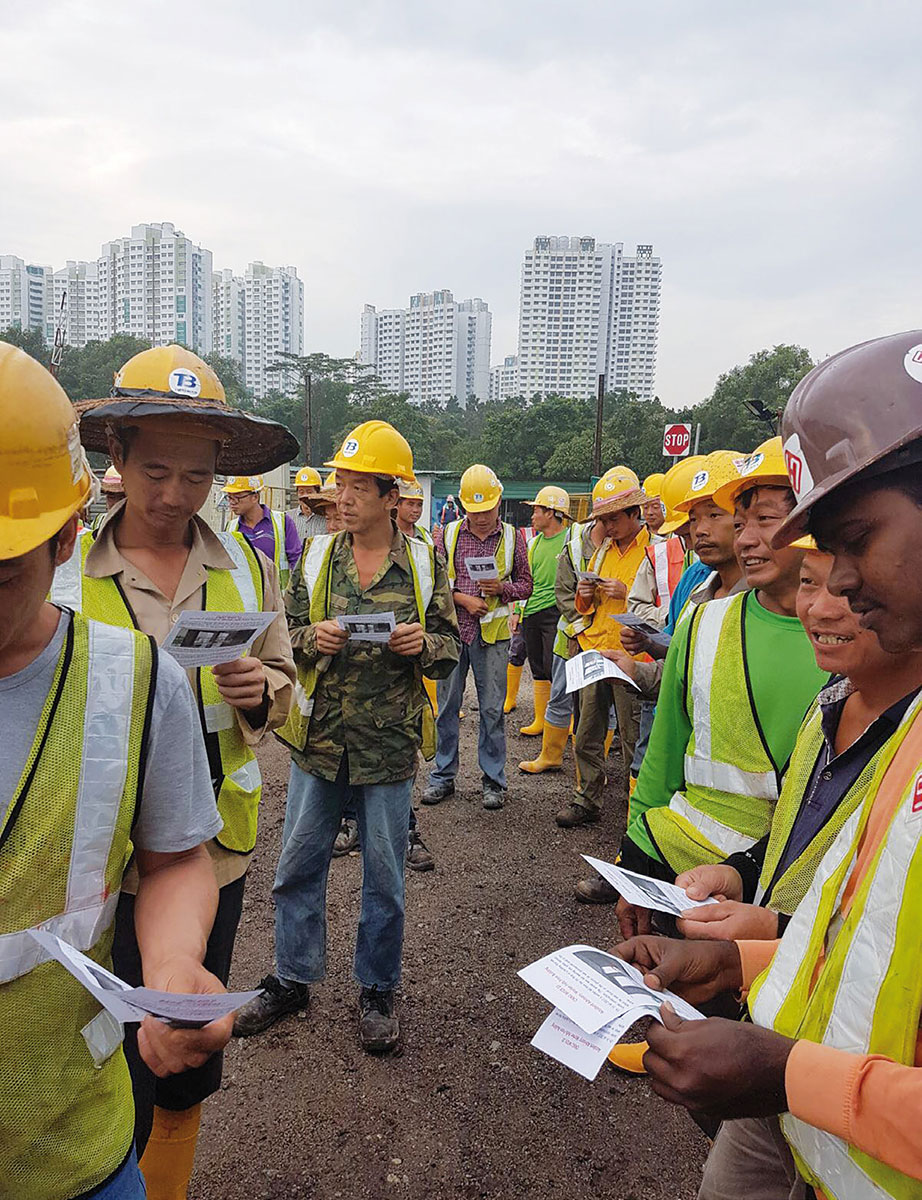Low-wage Chinese migrant men in Singapore
Despite there being a growing body of research focusing on male migration – especially low-wage migrant men – it still shows a certain bias in which work (and economics) is seen as central to the men’s lives. Yet migrant men are not just workers, but also fathers, husbands, lovers, boyfriends. A small field of research is now emerging, among it my own work, which is looking at migrant men’s various positionalities and specifically, heterosexuality. Focussing on the heterosexuality and sexual desires of migrant men can bring some clarity to how masculinities transform with migration.
Through migration, masculinities are challenged and transformed by hegemonic ideologies encountered in the host country. A review of the current literature on Chinese masculinity and migration shows two things: firstly, Chinese men’s masculinity is highly tied to work, and thus Chinese masculinity cannot be discussed without reference to the (global) economy. Secondly, the link of Chinese masculinity with the global economy has produced hegemonic masculine ideals in which economic power is proof of virility. As such, while many low-wage Chinese migrant men are likely to have already been subordinated to hegemonic ideals of masculinity in China due to their socio-economic status, it is likely many feel their subordinate positions even more intensely in destination countries such as my field site, Singapore.
Low-wage workers are subjected to multiple restrictions while working in Singapore. Their stay in Singapore is transient – up to a maximum of two years – and is subjected to renewal according to the employers’ decision. They are not permitted to marry a Singaporean citizen or permanent resident. They are also not allowed to bring their wives or families into Singapore. Loneliness is a recurring theme in interviews with low-wage migrant men. Furthermore, low-wage workers often find themselves in tightly-surveyed environments where they are subordinate to male supervisors who may physically or verbally abuse them. Low-wage workers, especially those in the construction sector, are often forced to live in unsanitary conditions, such as in shipping containers. My informants complained of overcrowded rooms, in which up to sixteen people would sleep in bug-infested beds.
Many low-wage Chinese male migrants live on-site, with imposed curfews and limited free movement. To gain access to them I used the mobile phone application WeChat (commonly known in Chinese as Weixin). This application is used among friends, but more often by men looking to get to know women; it allows the user to ‘find’ people in his/her physical proximity and to initiate a ‘chat’. Through WeChat I was able to have conversations with many Chinese migrants, nearly all of whom were male. My research showed that I was often the first (and only) Singaporean woman most of my low-waged Chinese male respondents had spoken to. This undoubtedly reflects their marginality in Singaporean society.
Since economic status is a key marker of Chinese masculinity, many of the male workers who migrate to Singapore to take on low-wage jobs are likely to be considered “losers of modernization”.1 Encountering a marginalized economic and social status in Singapore, is then to be associated with “failed masculinity”.2 To be a Chinese man with a low socio-economic status is perceived as not just falling short of masculinity but also Chinese masculinity.
While migration scholars should certainly continue their research on female migrants, as I have done myself,3 scholars in the field of gender and migration will do well not to neglect male migrants – an understudied group relative to female migrants. The literature on Chinese masculinity has been limited and has become dated. Moreover, while work on Chinese masculinity in the field of migration has been emerging, it is small and concentrated on rural-urban migration within China. In 2015, 61% of 978,000 Chinese emigrants were male.4 This is a phenomenon research needs to catch up with. I have found that researching low-wage Chinese males contributes not just to an understanding of the gendered subjectivities of the migrant worker, but also of how the intersection of ethnicity and class can work to subordinate him.
Sylvia Ang is a recent PhD graduate from the department of Anthropology and Development Studies, University of Melbourne. She has published in Gender, Place and Culture and Cultural Studies Review. Her current research interests are international labour migration, intersectionality, ethnicity, gender, class, and local modernities (sylvia.s.ang@gmail.com).
